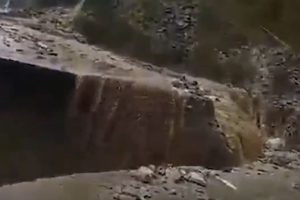For all the criticism frequently directed at “judicial overreach”, a grim reality is that the courts often step in to fill a vacuum resulting from the executive’s reluctance to take hard decisions that may trigger an unfavourable political fallout. Thus while there is every reason to commend the National Green Tribunal for initiating efforts to pressure the five states adjacent to the National Capital Region ~ Delhi, Haryana, Punjab, Rajasthan and UP ~ into effective action to curb the menace of the burning of crop stubble, it is difficult not to note that it ought to have been the Central government’s duty to ensure preventive/remedial action.
The Capital has had it bad this year, but whatever little action was taken was at the behest of the Supreme Court-appointed committee on pollution control ~ the environment ministry underplayed a situation which even had sections of the diplomatic community worried enough to recommend that an assignment in New Delhi be declared a “hardship posting”, and made much of the air-quality index “improving” from very severe to severe. And while it were the “extension services” of the agriculture apparatus that had bridged the gap between “lab and land” to foster the Green Revolution of the late 1960s, those services appeared to be in hibernation rather than put to use to persuade farmers to find alternative ways of utilising/discarding paddy straw. A series of essentially bureaucratic meetings may have been called, but the NDA leadership was diffident about taking the critical political initiative, even though three of the five states had governments from “within the family”.
With the kharif harvest completed and rabi sowing getting underway the “burning crisis” may have abated, but the NGT has opted to “strike” when the horrors are still fresh in the public mind. It has called a meeting next week with the specific purpose of setting up a mechanism to transport the crop residue to power stations of the National Thermal Power Corporation which says the stubble, if converted to pellets, can be used along with coal at its several power plants in the northern region. Officials of various government departments and the major power generator, along with scientists are slated to participate, with a thrust on converting the stubble to pellets.
The incentives to be offered to farmers will also be examined, since farmers contend they have no economically viable alternative to stubble burning. The decisions might help avert the “health emergencies” that have gripped the Capital and its satellite towns at the onset of the winters of 2016 and 2017, and could make things better next season, even though there are other causes of life-crippling smog. Yet the query remains “alive” ~ why did the government opt for inaction and invite a judicial entity to take the lead in what ought to be administrative action?











